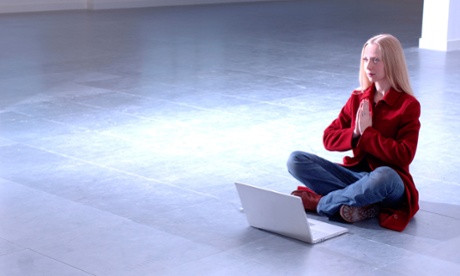
I spent yesterday morning at an event in central London surrounded by over 100 entrepreneurs, leaders and investors.
A sea of slick hair, smooth faces, and crisp tailoring; they spoke of thriving businesses, relentless networking regimes and daily acrobatics juggling parenthood with staying fit and healthy.
They were some of the most successful people in their field. And they had two things in common. They were all women, and they all felt guilty.
Their shared drive towards career success mirrored an internal trend that was alarmingly clear: deep and utter panic in the face of a never completed to-do list, and a crippling sense of shame at simply being who they were. Not just some of the time. But most of the time. And it goes way beyond working women in the city.
A 2010 survey by Stylist magazine found that more than 96% of women feel guilty at least once a day, while for almost half, the feeling arose up to four times a day.
Why all the guilt?
Women open their one-day-old eyes to a society that still requires (and in many cultures demands) that they aspire to be slim and attractive , accomplished homemakers and obedient wives.
At the same time, we also hear that finally we have a free run at the top, and we should go for it, as fast as we can just in case someone decides to pull the glass ceiling across again.
I’m in no way suggesting this is purely a female issue. Men have the very same inner critic. But it’s women that seem to be sharing it the loudest. Or at the very least, are very active in coming out to say they’ve had enough and would like to find a way to release them from this daily mental grind. And quite frankly, who can blame them?
While we work to make the world a more equal place, there’s no magic recipe for resolving all the conflicting notions of success we’re loaded with – but we can make some small changes that reduce their impact. Meditation and mindfulness have had a significant wave of interest from the working world in the past 3 years. And for very good reason.
This simple and easy technique has been scientifically proven to reduce stress levels, significantly improve cognitive skills in as little as four days and improve sleep. Mindfulness has also been shown to reduce feelings of shame and increase self-compassion.
Burnout
And if you’re more into chat than science, I can tell you over the garden fence that it works. Just over 3 years ago I was signed off work with classic burn out symptoms, the result of feeling driven by a constant feeling of guilt into working relentless hours and becoming impossibly productive in work and out.
Wanting to try an alternative to the doctor’s offer of medication to treat my newfound friend, anxiety, I started meditating. It worked, quickly and with no nasty side effects.
3 years on and I’ve gone from total collapse to running the operations of one of the most exciting and rapidly growing digital wellbeing companies in the world today: Headspace. I work hard - start-ups are crazy - but I feel happy, healthy and, more importantly, my inner guilt creature has become the exception rather than the rule.
How meditation works
So how does meditation work, and why is it so useful in freeing us from the shackles of worry? It helps in a number of ways. When you are forever on the go, you can easily disconnect from the fact that you’re ready to drop, your neck is crippled with tension or you haven’t breathed deeper than your upper chest for over 24 hours. Meditation provides an opportunity for you to check in with your body.
It also provides a framework within which you can practice observing your thoughts and emotions rather than trying to tackle them. This gives you a new perspective on a very busy mind and far more space to make more rational decisions and reduce procrastination.
If you haven’t ever tried it, give it a go. I’d recommend doing it before you sit down to write your to-do list, rather than putting it at No.1. (I doubt you have brushing your teeth in Evernote and I’d encourage you to see 10 minutes of meditation in much the same way).
It’s very easy. You need yourself, a place when you feel comfortable enough to close your eyes (at home, on the bus, at your desk), and 10 minutes. The simplest way to practice for a beginner is with a guided programme. Headspace’s free Take10 series is designed for just that .
So while we await the gradual evolution of strong, happy, healthy female role models in business, politics and the media, why not try taking 10 minutes out of your day to take the edge off the bickering inside your head, and make space for doing more of what you do best? Like becoming the next strong, happy, healthy female role model.
Shona Mitchell is the managing director of Headspace

